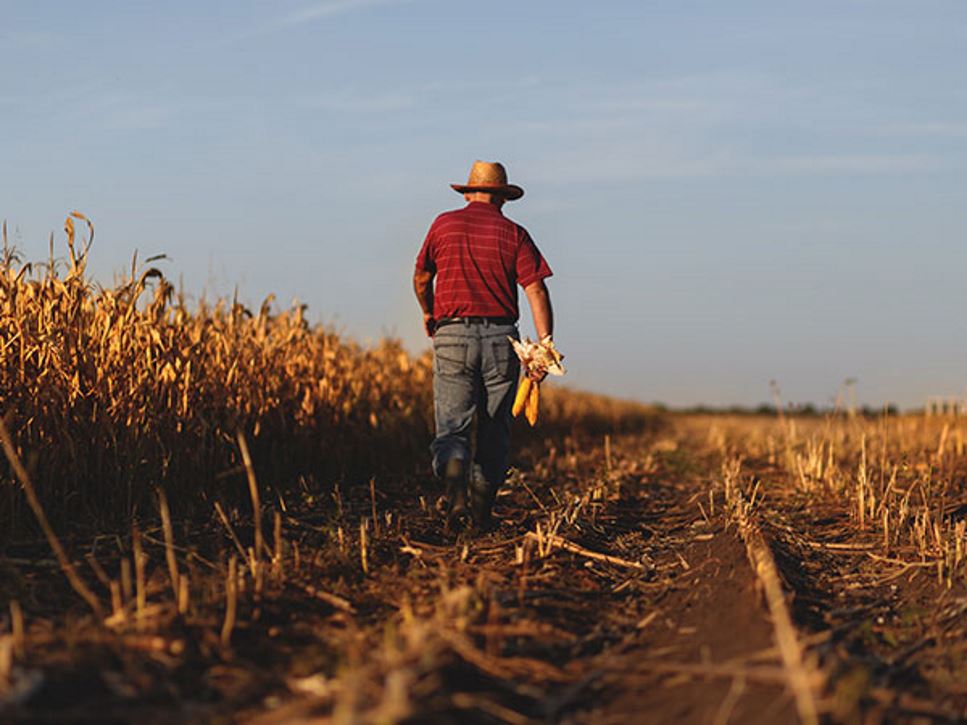The effects of climate change impact the health of both people and the environment. To minimize the impact and feed a growing population, which is estimated to reach 9.7 billion by 2050, food systems are incorporating more sustainable practices including reducing food waste and conserving resources.
Sustainable food systems
A “food system” is a broad term that describes anything involved in the production, distribution and consumption of food. This includes growing, raising, harvesting, processing, distributing, ensuring food safety, eating and even discarding of food. It also includes the connection of these processes and the people and resources that contribute to and are impacted by the food system.
The sustainability of a food system impacts everyone. Food systems shape what foods are available for people to eat, how easy they are to get and how much they cost.
A “sustainable food system” provides nutrition and food security for everyone without compromising the well-being of people or the planet now and in the future. While the topic of sustainability grows and the definition evolves, most experts agree that sustainable food systems address three key factors: economic, environmental and social.
The key factors of a sustainable food system impact us in different ways. The economic, or financial, goal of a sustainable food system is to benefit everyone involved in the system. This includes providing livable wages for food system employees, tax profits for governments, profits for the businesses involved in the food system and safe, nutritious, affordable and available food for all.
The social aspect of a sustainable food system involves fairness and equity for all participants, including vulnerable and underrepresented groups. This means promoting good health among workers, respecting cultural traditions, providing a safe work environment and animal well-being.
The environmental goal of a sustainable food system is to achieve a neutral or positive effect on the natural environment. This includes retaining biodiversity (which refers to the variety of species in our food supply and environment), limiting water use, prioritizing the health of animals and plants, minimizing food loss and waste and cutting down the amount of carbon in the atmosphere that contributes to climate change.
Balancing all factors
When developing sustainable food systems, economic, social and environmental impacts must be considered – as well as potential unintended outcomes. For example, improvements in technology may increase profits for investors (an economic benefit) and efficiencies in production but may result in job loss for farm workers. Alternatively, implementing new animal well-being practices at a farm would have social and environmental benefits but may require additional costs or labor, which impacts the economic aspect of the food system.
How you can help
Developing sustainable food systems requires action from all people involved. While individual efforts like recycling and reducing food waste are important, fundamental changes to the way food is produced, distributed and eaten, as well as changes to policies and infrastructure, also are needed to make lasting change.
Here are two ways you can help:
- Education. Learn about recycling programs and other opportunities to conserve resources in your community. If applicable, advocate for sustainability at your workplace by sharing your knowledge with others and proposing impactful changes such as placing recycling and composting bins in cafeterias and break areas.
- Action. Taking steps to reduce food waste, such as meal planning before grocery shopping, embracing leftovers and composting are great ways to do your part in your own kitchen. Consider supporting and purchasing from food brands that incorporate sustainable practices into their production and distribution. Most companies have this information available on their website.
Together, individual actions in addition to large-scale changes at the local, state, federal and global levels can create a sustainable food system.
Find a Nutrition Expert
Looking for credible nutrition information and recommendations? The Academy of Nutrition and Dietetics' network of credentialed food and nutrition practitioners are ready to help!
